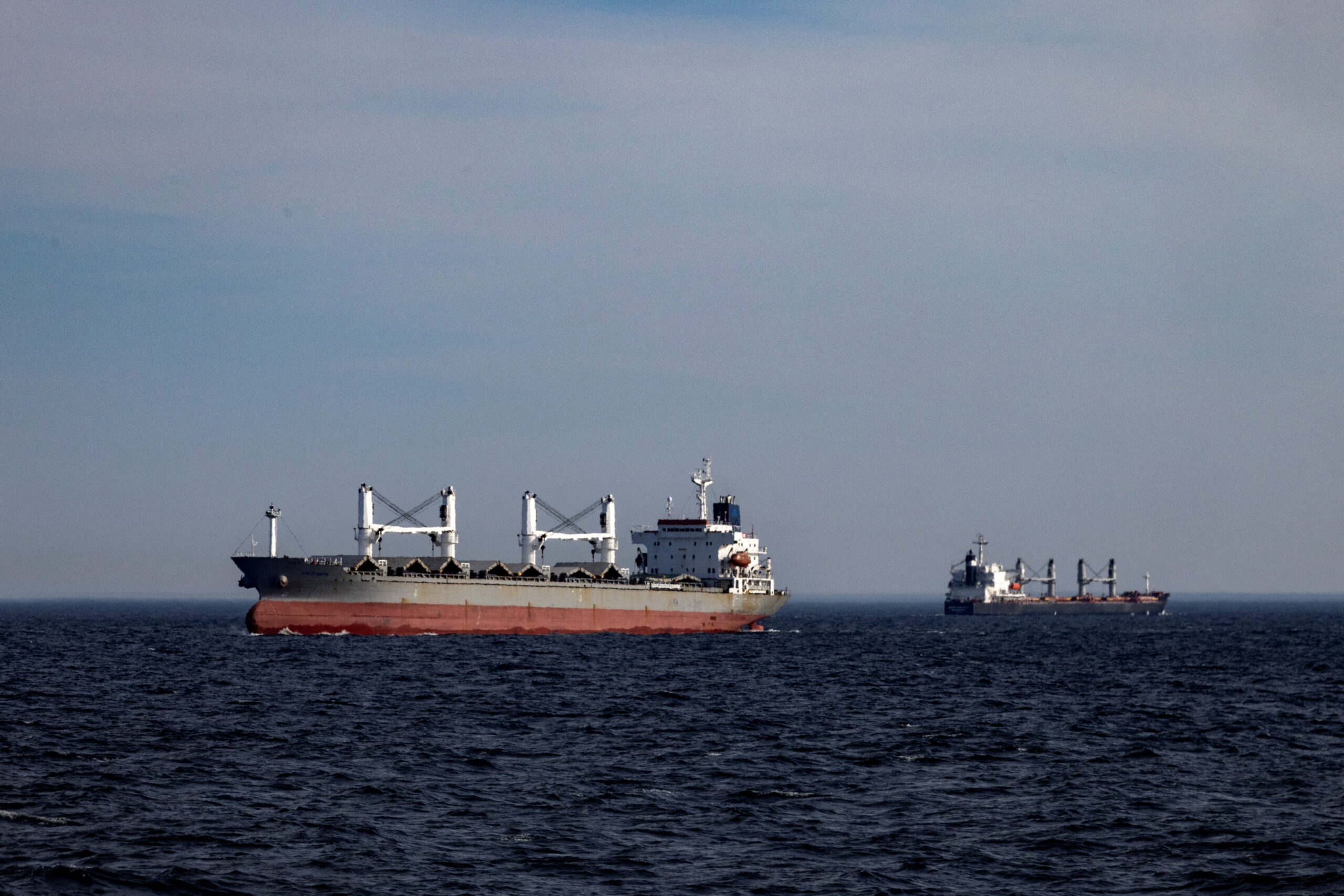Eternity C Sinks in Red Sea; Rescue Underway
A mission was under way on Wednesday to rescue crew from the Eternity C cargo ship which sank in the Red Sea following an attack that killed at least four crew members.

Three years after Russia’s invasion of Ukraine, a dramatic shift in Black Sea shipping patterns has emerged, with Ukraine’s dry bulk shipments surging 87% year-over-year despite ongoing regional tensions, according to shipping industry association BIMCO.
The remarkable recovery stems from Ukraine’s successful implementation of a coastal corridor initiative launched in August 2023, follow Russia’s withdrawal from the UN-brokered Black Sea Grain Initiative. Despite Russian attacks on vessels in September and October 2023, this alternative route has proven effective, though overall volumes remain 36% below pre-war levels, BIMCO says.
“Three years after Russia’s invasion of Ukraine, the volume of dry bulk shipments from the two countries combined is 6% below pre-war levels,” reports Filipe Gouveia, Shipping Analysis Manager at BIMCO. “While Ukraine has seen an 87% y/y jump in shipments, Russia’s have taken a 6% y/y fall.”
Russian exports have declined notably in recent months, with coal shipments down 11% and grain exports falling 2% year-over-year. Russian coal currently represents half of the combined shipments from both nations.
The conflict has significantly altered global shipping routes. Russian coal exports, previously destined for Europe from Arctic, Baltic, and Black Sea ports, have been redirected to India, China, and Turkey since August 2022. This shift has extended sailing distances for Russian fertilizer and grain shipments, which now increasingly serve Asian and South American markets, according to BIMCO.
In contrast, Ukrainian shipping routes have become more regionally focused. The nation has seen a decline in iron ore shipments, while grain exports have shifted from Asian to Mediterranean markets, according to BIMCO.
Looking ahead, BIMCO analysts predict potential strengthening of Ukrainian shipments, particularly if the conflict resolves. However, Russian shipments face headwinds as China, their primary coal customer, reduces import demand amid renewable energy expansion. Additionally, Russian coal exporters face growing competition from Indonesian and Australian suppliers.

Sign up for gCaptain’s newsletter and never miss an update

Subscribe to gCaptain Daily and stay informed with the latest global maritime and offshore news


Stay informed with the latest maritime and offshore news, delivered daily straight to your inbox
Essential news coupled with the finest maritime content sourced from across the globe.
Sign Up